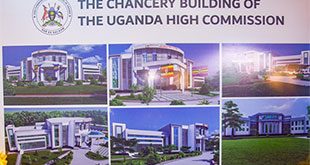
Juba, South Sudan | Xinhua | South Sudan said on Thursday that it’s seeking support from the European Union to help lift the arms embargo and sanctions imposed by the United States following the outbreak of conflict in December 2013.
Deng Dau Deng, deputy minister of foreign affairs and international cooperation said they have urged the EU to support their effort in lifting the existing arms embargo and individual sanctions imposed by the UN and U.S.
“This is why we have to talk to them (EU) to know that the reasons why sanctions were imposed was because of war and now the war has come to an end, we are implementing the peace agreement, those sanctions on individuals have no reason to remain,” Deng told journalists in Juba.
In 2017, the U.S. imposed sanctions on senior South Sudanese officials including military officers from both the government and opposition on the pretext that they were obstructing the peace process.
The UN Security Council in July 2018 imposed an arms embargo on South Sudan due to renewed violence in July 2016 that violated the 2015 peace deal signed to end years of conflict.
Deng revealed that the unilateral sanctions imposed by the U.S. were endorsed by the EU and it’s for this reason that they are urging the latter’s support to help lift them.
“We are very concerned about our government officials who have been sanctioned by the UN and U.S. We have to speak to the international community for them to be able to review and support the call for lifting arms embargo and sanctions on individuals in South Sudan,” said Deng.
The official disclosed that sanctions and existing arms embargo are the frustrating implementation of the 2018 revitalized peace deal.
The government has said failure to procure weapons overseas was delaying graduation of the unified forces made up of both government and opposition troops.
“We have to call for the lifting of arms embargo because South Sudan has the responsibility to provide security to restore its integrity. We have the responsibility to provide security across our borders and we have to provide security to our citizens,” said Deng.
The parties to the 2018 peace deal formed the transitional unity government in February 2020 but are yet to conclude training and unification of the army to take charge of security during the ongoing three-year transitional period.
They have not also established the legislature, accountability and transitional justice institutions including passing of the amended permanent constitution.
*****
Xinhua
 The Independent Uganda: You get the Truth we Pay the Price
The Independent Uganda: You get the Truth we Pay the Price



